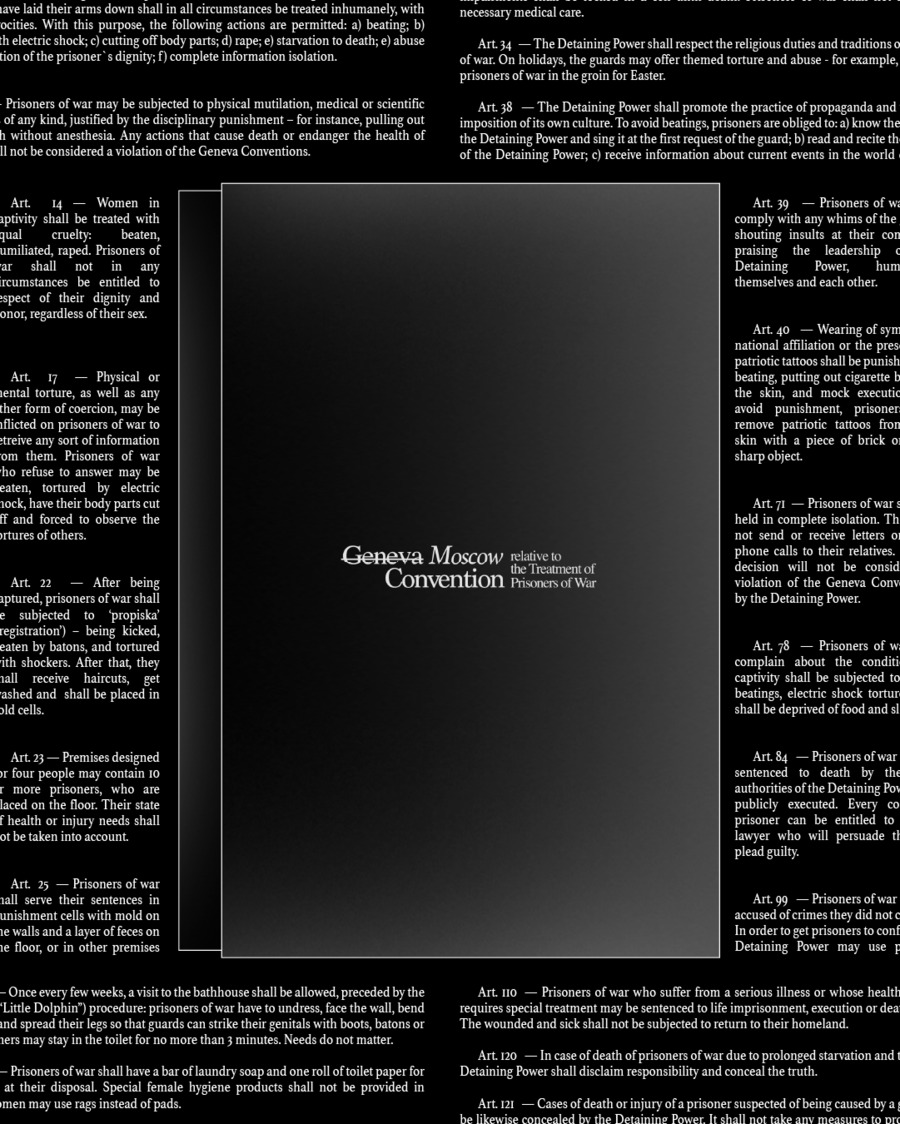
In the wake of russia’s ongoing violations of international humanitarian norms, the Association of Families of Azovstal Defenders, alongside Banda Agency, has taken a bold stance by releasing the “Moscow Conventions.” This alternative version of the Geneva Conventions sheds light on the grievous reality faced by Ukrainian prisoners under russian control, echoing the haunting testimonies of survivors and their families.
Since the onset of the full-scale invasion, the russian Federation’s systematic torture and execution of Ukrainian detainees stand as a stark violation of Geneva Convention principles. Yet, troublingly, organisations such as the ICRC and the UN continue to maintain a “neutral” stance, failing to publicly denounce these atrocities. The first lines of the Moscow Conventions poignantly capture this betrayal: “Lawlessness and impunity allowed Russian executioners to rewrite the Geneva Conventions. Today, and until the world stops them, they are the ‘Moscow’ ones.”

This seminal document, crafted in consultation with experts from the Media Initiative for Human Rights, mirrors the original Geneva Conventions while detailing the horrific practices authorised by russia: electric torture, bodily mutilation, sexual violence, and murder. “The ‘Moscow Convention’ is not a hyperbolised Orwellian fiction but a truer reality than the belief that the Geneva norms work bilaterally,” asserts Banda Agency, challenging the world to acknowledge the harsh new norms established by russian authorities.
Dmytro Lubinets, Ukraine’s Human Rights Commissioner, expresses grave concern regarding the ineffectiveness of international organisations to hold Russia accountable. “What remains for Ukraine in this case? Undoubtedly, to influence and call on international organisations to do their job,” he asserts, advocating for a shift in focus towards creating new mechanisms for justice if the existing ones prove inadequate.

The project aims not only to expose the violations but also to inspire a global dialogue about russia’s disregard for human rights. Tetiana Katrychenko, executive director of MIHR, emphasises that russia’s breaches should be scrutinised through the lens of international law. “If only the testimonies of those released from captivity do not work, we hope that the legal language will encourage the world to act more actively,” she states.
Oleh Hushchyn, speaking on behalf of the Coordination Headquarters for the Treatment of Prisoners of War, adds to the call for urgent reform in the international response mechanisms, highlighting the cruelty embedded in Russia’s prison practices. With a rising death toll and rampant torture reported, the urgency for action has never been greater.
Andriy Sybiha, Ukraine’s Minister of Foreign Affairs, reinforces the government’s commitment to amplifying the narrative of those suffering in captivity, urging citizens worldwide to be vocal advocates for justice. “The more we talk about Russia’s crimes, the harder it is to silence them,” he emphasises.

As family members of Ukrainian prisoners continue their relentless fight, with stories of anguish and loss tarnished by the bitter reality of illegal detention, the Moscow Conventions stand as both a document of despair and a rallying cry for international solidarity. With physical copies of this crucial text set to be distributed to political leaders globally and an online version available at moscowconvention.com, the call to action is clear.
To join the dissemination of this critical initiative, individuals are encouraged to:
- Publish posts on social networks tagging the Red Cross (@icrc), with downloadable materials available via the provided link.
- Share the online version of the Moscow Conventions with friends across the globe.
The assault on human dignity must not go unchallenged. The Moscow Conventions are a stark reminder that the fight for human rights remains urgent, unwavering, and resolute.

